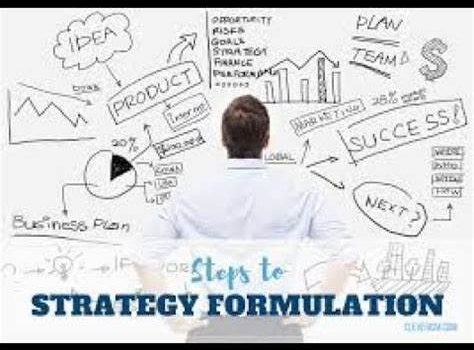
Unlocking Innovation Mastering the Art of Formulating Business Concepts in 5 Strategic Steps
Introduction:
Welcome to the exciting world of entrepreneurial innovation! In this comprehensive guide, we’ll embark on a journey with John Innovator, a seasoned entrepreneur with a wealth of experience in transforming abstract ideas into thriving businesses. Join us as we explore the intricacies of formulating business concepts and learn the artistry behind it.
Genesis of a Concept
Every successful business concept starts with a spark—an idea that addresses a need or capitalizes on an emerging opportunity. John Innovator delves into the crucial first step of understanding how to identify these opportunities and tap into market needs effectively.
Creative Process Unveiled
Discover the nuances of the creative process and how it plays a pivotal role in shaping the initial stages of a business concept. John shares anecdotes from his own experiences, illustrating the importance of intuition and creativity in this journey.
Navigating Market Research
Market research is the compass guiding entrepreneurs through uncharted territories. In this section, we explore the significance of in-depth market research and how it forms the bedrock of a successful business concept. John outlines practical approaches to gathering and interpreting market data. One cannot underestimate the importance of knowing your audience. John provides insights into creating customer personas, understanding their pain points, and tailoring your business concept to meet their needs effectively.

Conceptualization Strategies
Here, John unveils the core of the process—five strategic steps to breathe life into your business concept. From ideation to refinement, these steps provide a structured framework to ensure your concept not only stands out but has a solid foundation how to take your initial ideas, brainstorm effectively, and refine them into a concept that is not only unique but also viable in the market. John emphasizes the importance of collaboration and diverse perspectives during this crucial phase. Prototyping is where the abstract becomes tangible. John guides you through the art of creating prototypes that not only impress potential investors but also serve as a valuable tool for validating your concept with real users.
Art of Prototyping
Prototyping is not just about making a physical model; it’s about creating something that resonates with your target audience. John shares practical tips on choosing the right prototyping techniques, incorporating user feedback, and refining your concept accordingly. A brilliant concept needs an equally compelling pitch. John walks you through the essentials of presenting your prototype, whether to investors, stakeholders, or potential customers. Learn the art of storytelling to make your business concept memorable.
Refining and Adapting
In the dynamic world of business, adaptability is crucial for survival. John discusses how to refine your concept based on feedback, market changes, and emerging trends. Discover the importance of continuous improvement and staying ahead of the curve. No entrepreneurial journey is without its challenges. John shares personal stories of setbacks and lessons learned, providing valuable insights on resilience and problem-solving in the face of adversity.

Visual Table:
| Step | Conceptualization Stage | Key Actions |
|---|---|---|
| 1 | The Genesis of a Concept | Identify opportunities and market needs. |
| 2 | Navigating Market Research | Conduct in-depth market research. |
| 3 | Conceptualization Strategies | Apply five strategic steps. |
| 4 | The Art of Prototyping | Create impressive and validating prototypes. |
| 5 | Refining and Adapting | Adapt based on feedback and emerging trends. |
Conclusion:
As we draw the curtain on our exploration into the art of formulating business concepts, it’s evident that innovation is not a solitary event but a dynamic process. Guided by the seasoned insights of John Innovator, we’ve navigated through the intricacies of identifying opportunities, conducting in-depth market research, and implementing strategic steps to bring a concept to life. At the genesis of every successful business concept lies a spark of creativity. John’s emphasis on understanding the creative process underscores the importance of intuition and originality in the entrepreneurial journey. Ideas are not created in a vacuum; they evolve through a delicate dance of inspiration, observation, and adaptation. Our exploration of market research has revealed it to be the compass that guides entrepreneurs through uncharted territories. Knowing your audience, understanding their needs, and conducting thorough research provide the foundation upon which a robust business concept is built. John’s pragmatic approach to market research serves as a beacon for those navigating the complex landscape of consumer demands. Conceptualization is not a mysterious art but a structured process. John’s unveiling of the five strategic steps—ideation, market research, prototyping, refining, and adapting—provides a roadmap for transforming abstract ideas into tangible, market-ready concepts. Each step plays a vital role in shaping and validating your business concept, ensuring it stands out in a competitive environment.










